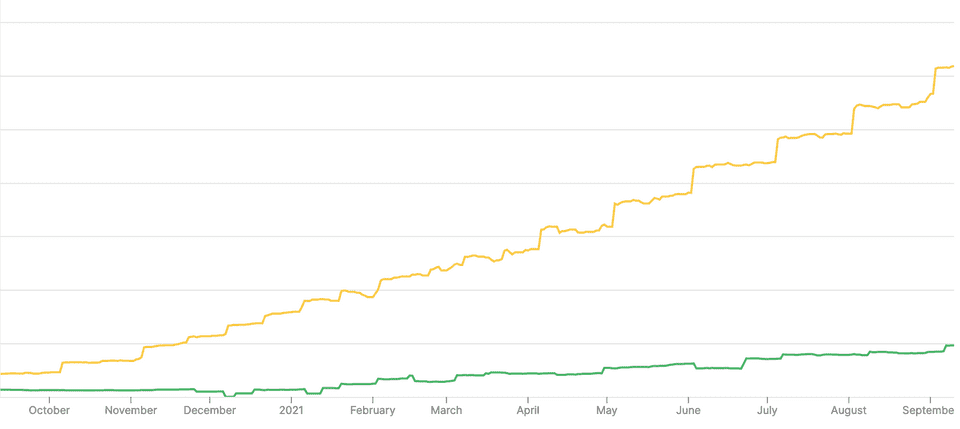The SIP is an option to choose to invest in Mutual funds. Mutual Funds can be a separate subject and we can talk about it for hours. You can learn about it all over the internet. Mutual funds topic in Varsity by Zerodha is an excellent place to start learning about it.
Let’s assume that our money put in the equity mutual funds will be used to buy shares of multiple companies in the stock market. Mutual funds are not limited to only investing in the equity though. With this information, let’s come back to how we can invest in it.
Different Asset Management Companies (AMCs) own the mutual funds. They would want to differentiate among their competitors so the investors like you and me will invest in their funds. So, they come with all the freedom, costs, and commissions. That’s why they have a different NAV (Net Asset Value) unit price that is given in return for the investment. Stock Exchange and related fields are highly regulated. So, we don’t have to worry about cheating and worrying about any hidden costs. All the costs and fees are only standard though each fund can charge different amounts annually based on their expenses.
Whichever fund or AMC you choose to invest in, there will be two options on how you can invest.
- Lumpsum Investment
- Systematic Investment Plan
Lumpsum is like saving our money in the Fixed deposit in the banks; only once do we invest the money.
Systematic Investment Plan (SIP) is like how we can save our money in the Recurring deposit in the banks; the money is invested periodically over different periods.
Let me talk more about SIP and why it is beneficial compared to lumpsum and our overall investment strategy.
Advantages of SIP over lumpsum investment
- SIP is set up only once, and it’s even easier to activate a SIP online if you already have a Demat account.
- SIP continues to debit the amount from your trading account and invest over the configured period without any manual intervention. So, your investments are not interrupted unless manually stopped.
- SIP removes the emotion that we attach to the money and all the thoughts that come to our minds before making a decision.
- Sometimes, our thought could even let us stop investment like any other bill for any temporary financial crisis. This problem is solved by SIP as it is not touched upon again unless required.
- Stopping a SIP would make us feel more guilty than skipping a one-time investment transaction. So, we would most probably not do it.
- SIP is not just about our psychology. It’s equally beneficial over lumpsum investment in the market. SIP will let us avoid do bulk buys without knowing the market condition. We don’t even need to care about temporary fluctuations in the market if invested through SIP. It also saves out time to avoid learning about the market condition before every investment.
- We invest the money regardless of the market condition, and we would have avoided the dips and highs by averaging them out.
- Lumpsum investments make us sit on cash for a long time with a lot of opportunity costs.
Take a look at how my investments through SIP (Yellow line) compared with my direct stock investment (Green line) in the past year.
Difference between SIP and lumpsum investment
- Lumpsum is just another way of investment, and it provides the freedom for investors like us to put in whatever the amount at any market open day. Thus, stockbrokers provide lumpsum investment as an option to trade.
- For AMCs and SEBI (It’s the regulatory board for the securities and exchange in India), there’s no difference between SIP and lumpsum. Only the investment transaction does matter, and SIP is just the process of how the stockbrokers make these transactions periodically. Otherwise, both the trades are the same when it comes to investing in the fund of AMCs.
- Some of the mutual funds come with a lock-in period of a few years or a penalty (Exit Load) for early liquidity for some of the other funds. It depends on the type of fund that is invested in any AMC. When invested via SIP, this lock-in period and Exit Load periods are also a rolling time window. The start of the SIP does not matter, and only the date of when the transaction was made is considered.
- Money withdrawal does not vary based on how we invest the money. If the NAV units are available for redemption, they can be redeemed immediately to your bank account. Something called SWP (Systematic Withdrawal Plan) will be useful if you want to redeem periodically. Like a regular income or pension, it could be helpful for those who need it in an automated way. SWP is not related to SIP.
